Solutions to promote sustainable livelihoods in Mekong sub-region
These are two of the recommendations submitted by speakers at the international scientific conference ‘Sustainable development of the Mekong sub-region” on June 7 at the Ho Chi Minh City University of Law.
The recommendations came in the presentation ‘Applying policies and laws to transform farmers’ livelihoods in the Mekong delta to adapt to climate change – from the practice of Hau Giang province’ by Luu Thi Thanh Mau, vice chairwoman of Vietnam Young Entrepreneurs Association, and CEO of southern developer Phuc Khang Corporation.
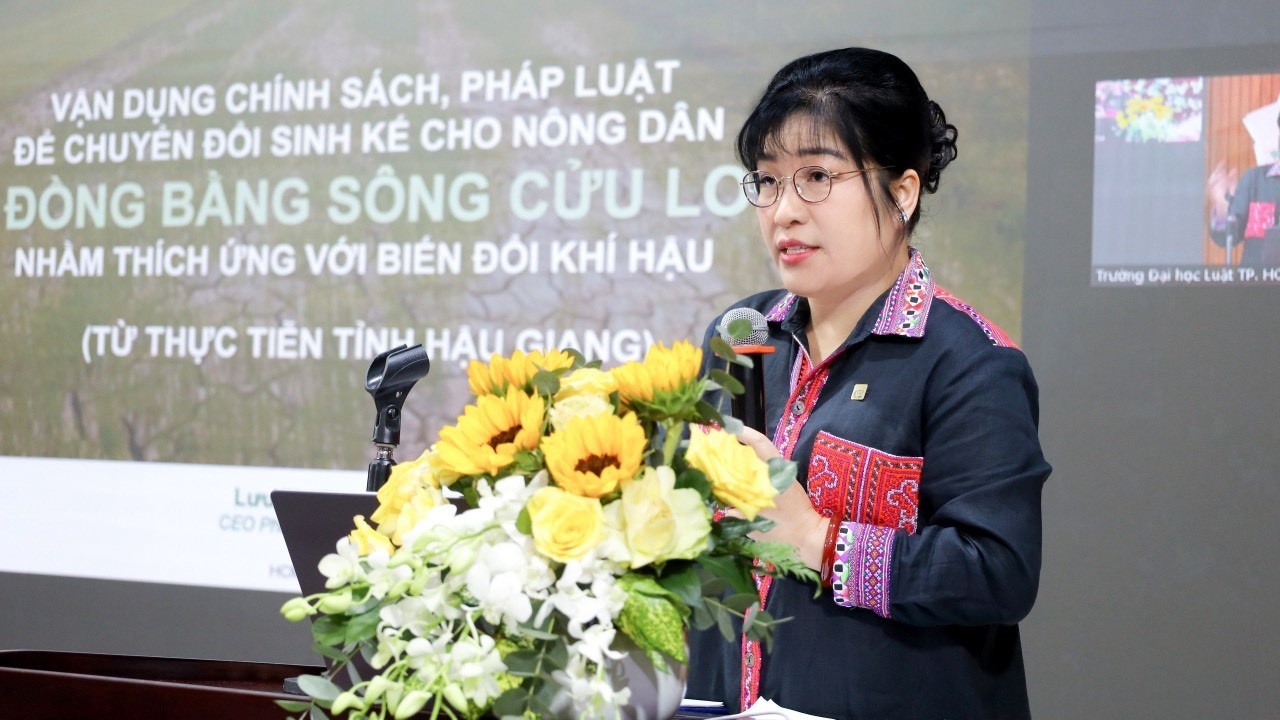 |
| Luu Thi Thanh Mau, CEO of Phuc Khang Corporation |
The conference was host to 14 different presentations on topics ranging from international policies on climate change solutions, natural resource exploitation, and sustainable development, to international investment and human rights in the Mekong delta region.
Mau has reportedly spent a lot of time and effort studying sustainable development approaches that could limit the impact of climate change, and she made four important recommendations.
The first is to quickly apply new regulations of the 2024 Land Law on agricultural land use to transform farmers' livelihoods in the Mekong Delta.
Secondly, the government needs to be ready to assess the impact and implement flexible policies for the region regarding the exploitation and use of the Mekong River.
Mau also recommended localities in the delta region work together to develop appropriate and practical approaches to develop the region, and finally, she spoke of the need to raise awareness and output capacity for farmers based in the delta.
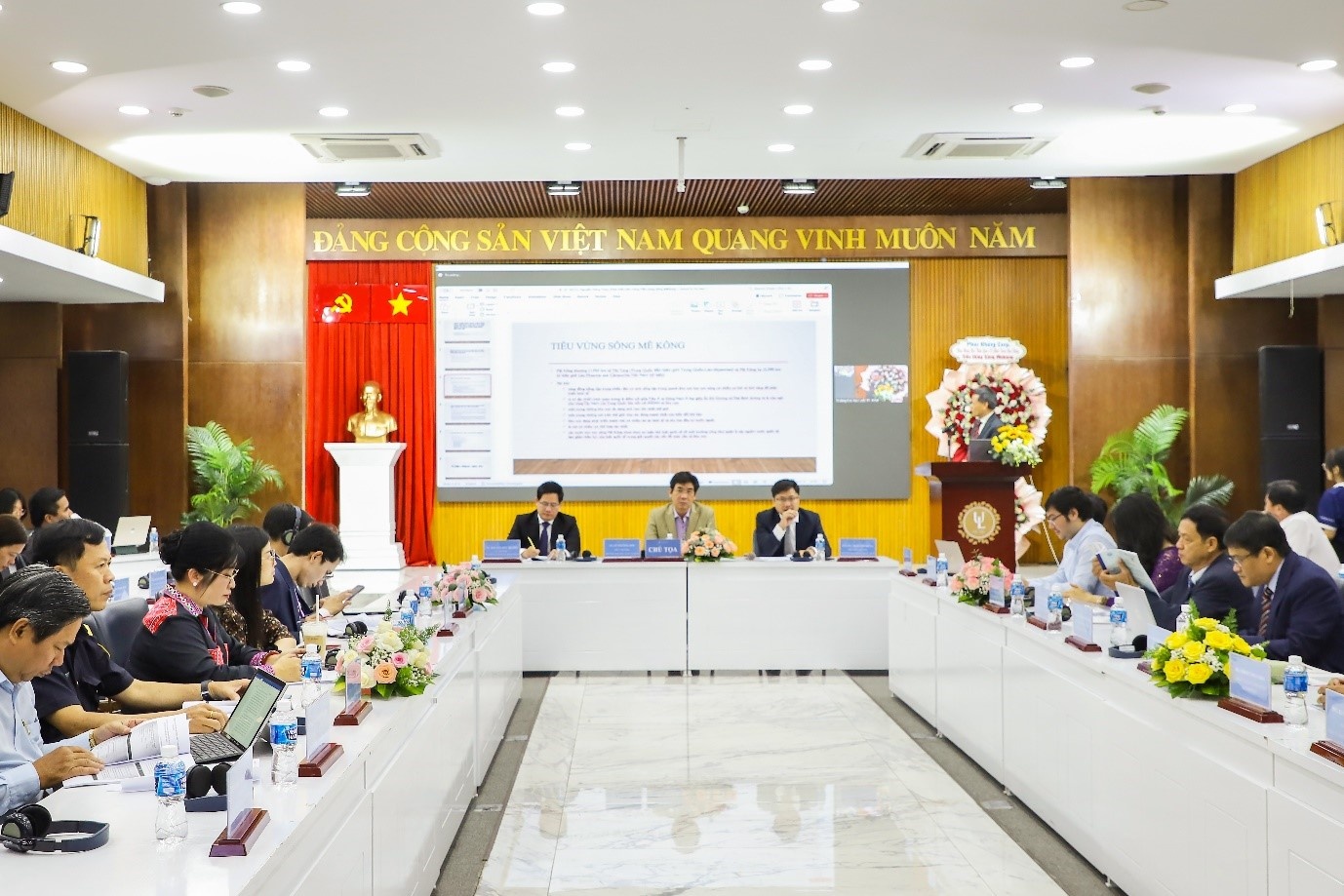 |
Mau noted that the government has already issued several resolutions guiding the use of agricultural land to propel socioeconomic development in the delta. "New regulations in the Land Law can now help businesses access funds to form large-scale ‘clean’ agricultural production models," said Mau.
The new law encourages converting crop cultivation, livestock rearing, and aquaculture from small-scale individual households to large-scale farms powered by modern technology that use high-quality plant and animal varieties and operate with greater economic efficiency. The goal is to make agriculture as ‘clean’ as possible and also allow the use of agricultural land for ecotourism.
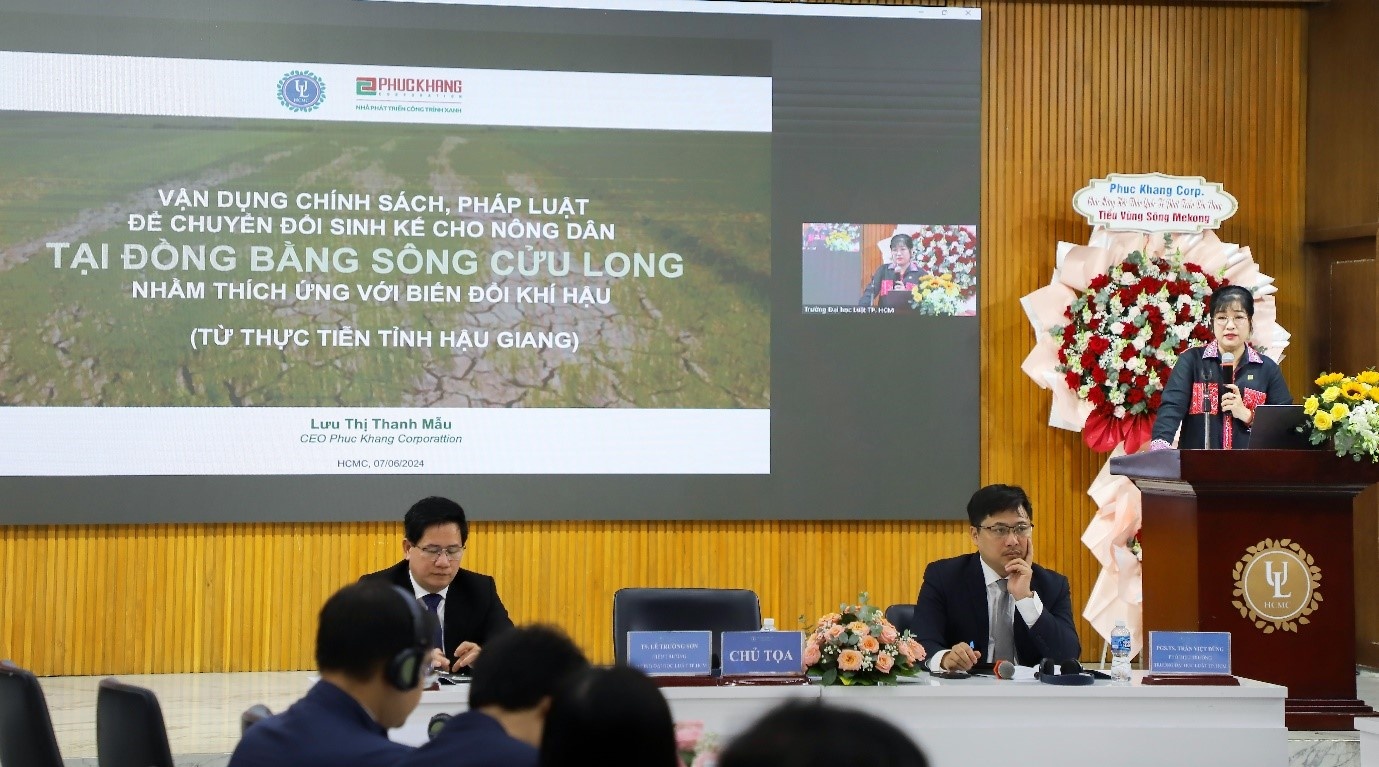 |
| CEO Thanh Mau (standing, right) giving a presentation at the conference |
Climate change is also one of the concerns affecting livelihoods in the region, and the topic did not escape attention at the conference. The delta region’s water resources are becoming increasingly scarce, leading to freshwater shortages while saltwater intrusion encroaches deeper inland, particularly during the long dry season.
This situation has had a critical impact on the lives of people in the delta, but farmers have undoubtedly born the brunt. The recent shortage of freshwater in Tien Giang province is a typical example. Agricultural land has also been severely affected by saline intrusion and soil contamination, making it impossible to grow rice and other crops in many areas.
Rising water levels and prolonged droughts also greatly affect aquaculture.
"We need to adapt to the inevitable impacts of climate change and rising sea levels and turn challenges into opportunities. Growth in the region must leverage the ecosystem and be compatible with its biodiversity, culture, and people, and combine advanced technology with traditional knowledge," Mau said.
"The process needs a long-term vision. We need to prioritise climate change adaptation but also take advantage of the opportunity to develop a low-carbon, 'green' economy that can protect the local ecosystem," she added.
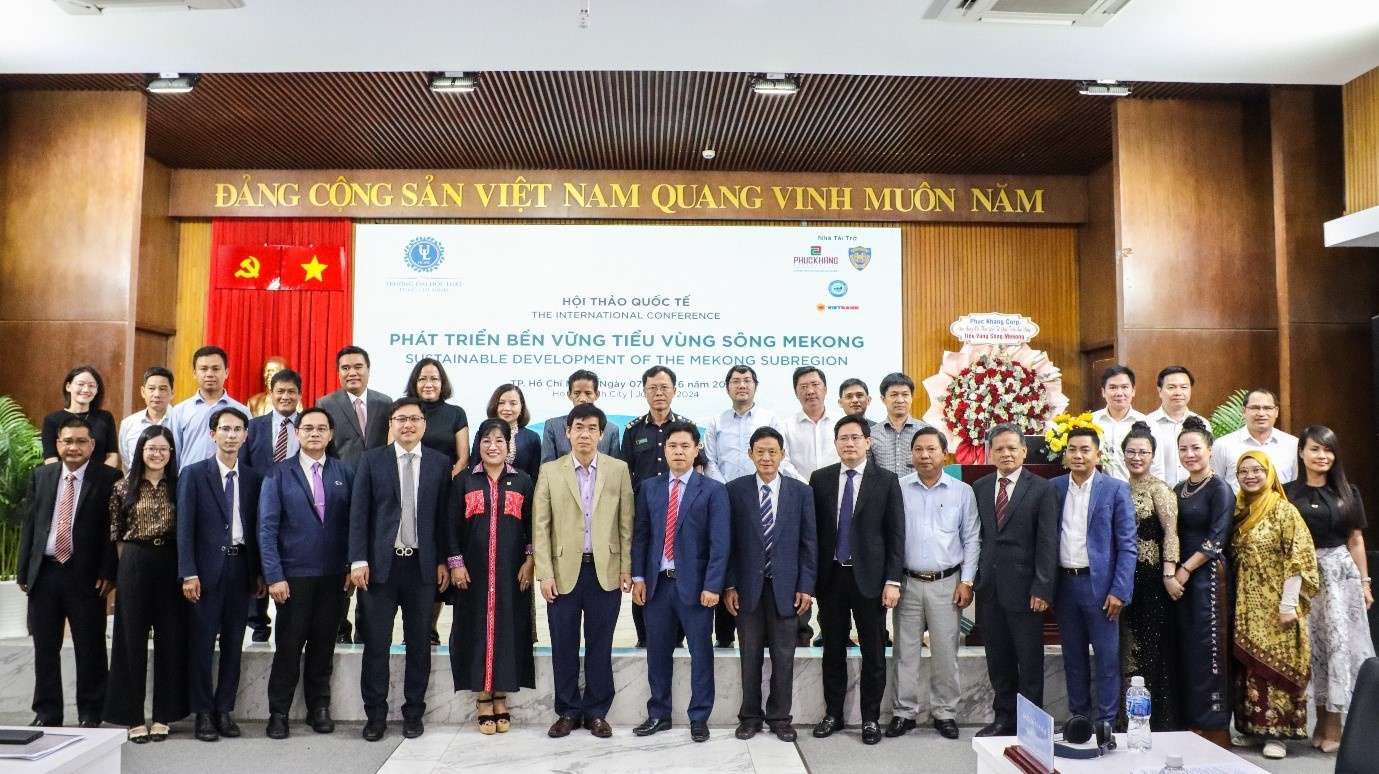 |
| CEO Thanh Mau (bottom row, sixth from left), Le Truong Son- rector of Ho Chi Minh City University of Law (bottom row, seventh from left) and speakers at the conference |
Climate change requires initiative from the government and responsible engagement from individuals, businesses, and organisations. Phuc Khang Corporation, as a pioneering 'green-buildings' developer, has taken specific action to promote climate change adaption, such as funding the Centre for Vietnamese and Southeast Asian Studies at the University of Social Sciences and Humanities.
The company is also supporting the research team of a project in Hau Giang that helps farmers adapt to the impacts of climate change, with renowned scientist Vo Tong Xuan as the advisor.
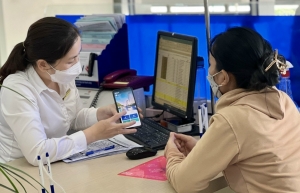 | Digital solutions to bring sustainable growth to Ba Ria-Vung Tau Digital transformation marks a significant step in narrowing the economic gap and geographical distance between Ba Ria-Vung Tau and other localities, but the province is still facing a rough path to success. |
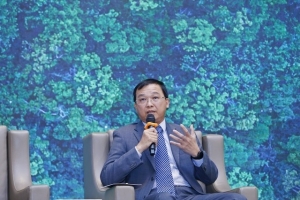 | Vinamilk invests in sustainable development solutions Investing money in implementing sustainable solutions is the long-term direction, responsibility and benefit of many businesses, including Vinamilk. |
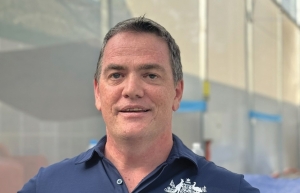 | Australia prioritises support in Mekong Delta region The Vietnamese government is placing huge investment into developing the Mekong Delta region. Ciaran Chestnutt, deputy consul-general of the Australian Consulate-General in Ho Chi Minh City, spoke with VIR’s Hoang Oanh about the Australian government’s commitment to supporting the region. |
What the stars mean:
★ Poor ★ ★ Promising ★★★ Good ★★★★ Very good ★★★★★ Exceptional
 Tag:
Tag:
Related Contents
Latest News
More News
- Construction firms poised for growth on public investment and capital market support (February 11, 2026 | 11:38)
- Mitsubishi acquires Thuan An 1 residential development from PDR (February 09, 2026 | 08:00)
- Frasers Property and GELEX Infrastructure propose new joint venture (February 07, 2026 | 15:00)
- Sun Group led consortium selected as investor for new urban area (February 06, 2026 | 15:20)
- Vietnam breaks into Top 10 countries and regions for LEED outside the US (February 05, 2026 | 17:56)
- Fairmont opens first Vietnam property in Hanoi (February 04, 2026 | 16:09)
- Real estate investment trusts pivotal for long-term success (February 02, 2026 | 11:09)
- Dong Nai experiences shifting expectations and new industrial cycle (January 28, 2026 | 09:00)
- An Phat 5 Industrial Park targets ESG-driven investors in Hai Phong (January 26, 2026 | 08:30)
- Decree opens incentives for green urban development (January 24, 2026 | 11:18)























 Mobile Version
Mobile Version